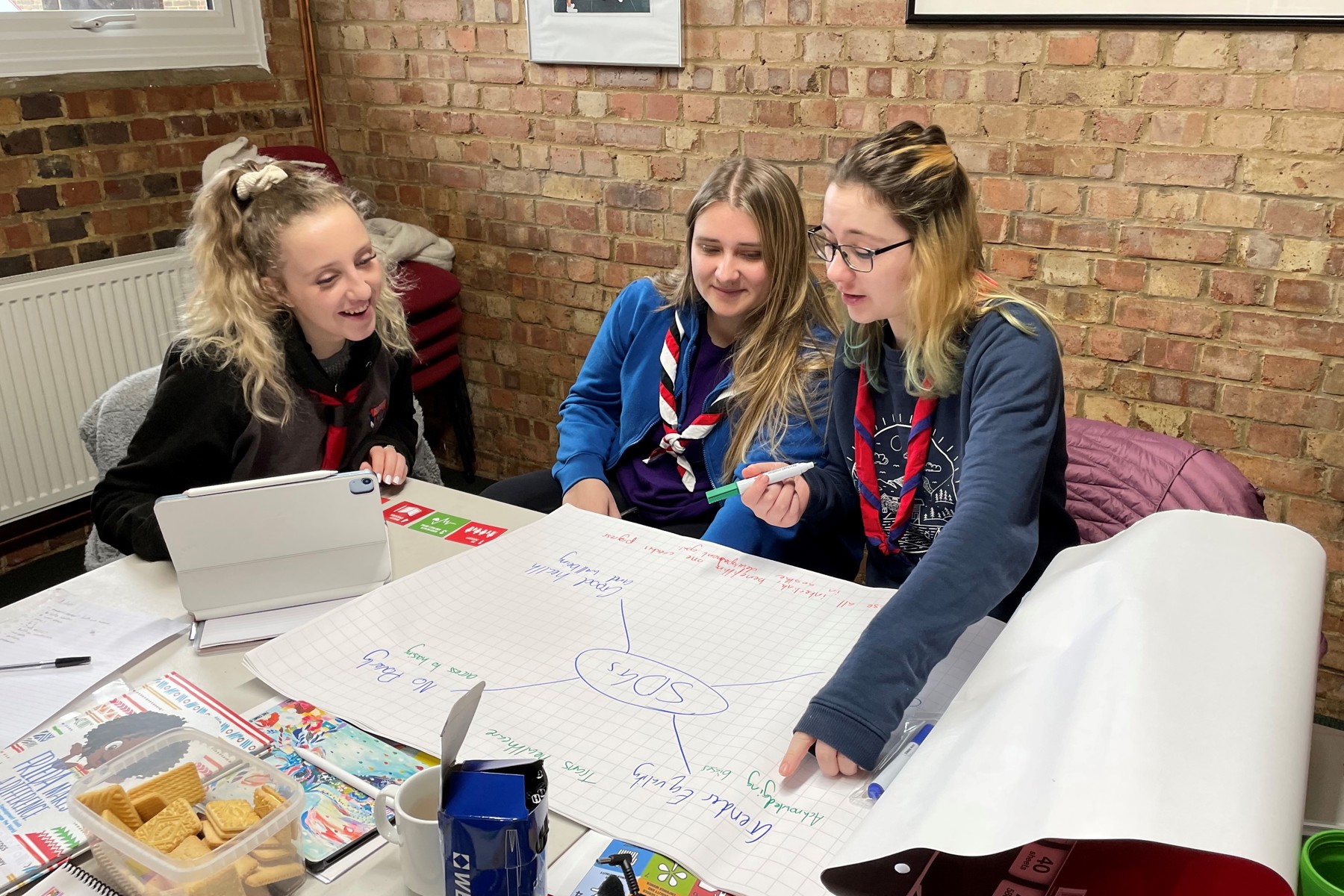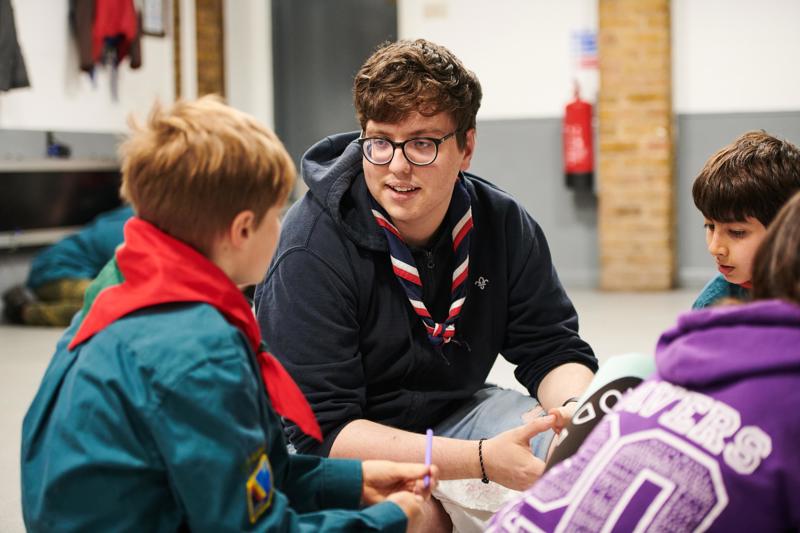New research: The Employability Badge
This research from Demos shows Scouts are gaining skills that employers want now, and this will protect young people’s employability for future jobs.
Quick links
In May 2023, Demos (the UK’s leading independent cross-party think tank) launched new research supported by Scouts.
The Employability Badge looks into the challenge of youth unemployment. It explores how extracurricular activities can give young people the skills and experiences they need to enter the world of work and progress in their careers.
In particular, it focuses on how Scouts (as an example) builds strong relationships and social experience, and how young people can develop the skills and attributes that employers are looking for.
Key findings
- 74% of Scouts alumni felt optimistic about getting what they want out of their careers, compared to 47% of people who didn’t do extracurricular activities.
- 53% of those who went to Scouts felt prepared starting work for the first time, compared to 37% people who didn’t take part in any extracurricular activities.
- 60% of Scouts alumni agreed that taking part in extracurricular activities helped prepare them for their careers, in comparison to 49% of non-Scouts (including those who did other activities).
Spending a long and frequent amount of time doing extracurricular activities brings the most impact for young people, as those who took part more often felt significantly higher benefits.
- 78% of full-time employed people say extracurricular activities had a big impact on their lives, compared to 62% of unemployed people.
Those who were in Scouts are gaining the skills employers most value, with more than half saying the teamwork and leadership skills they learned in Scouts help with their careers.

Transferable skills are most important
The report outlines how young people are being held back by a ‘double skills gap,’ with employers struggling to recruit people with the right transferable and technical skills.
However, employers consistently said they most valued transferable skills, believing them to be the most important.
Demos argue the drive to net zero and the growth of artificial intelligence (AI) have put a premium on the kind of transferable skills that can’t be automated. It’s the absence of these skills, rather than technical skills, that most impacts the employability of young people.
The report argues that people who’ve taken part in extracurricular activities felt significantly better prepared to start work. They’re gaining the skills that employers want now, and this will protect young people’s employability for future jobs.
To watch in full screen, double click the video
Scouts in Parliament
The report was launched with a reception in Parliament, to show MPs the impact of Scouts in helping young people be more employable.
This means we are able to influence the decision makers in Government and:
- influence asks for funding
- increase the value placed on activities such as Scouts by employers and high education providers
- make an ask to Government to support schemes that will drive volunteering locally, like ‘employer supported volunteering programmes’ to give more time for people to volunteer with extra-curricular activities such as Scouts.

This milestone report from Demos comes at a vital time, when the world of work and society is rapidly changing. Our young people are under more pressure than ever to have the right skills and experience to help them succeed – while protecting their mental health and wellbeing. It’s clear from this report that those who get the opportunities to take part in these out of school activities are better prepared for the future. It’s heartening to see that over half of former Scouts felt they were ready for the world of work.
Bear Grylls, Chief Scout and author of the report’s foreword

When you're applying for a job remember to show off just how much you’ve learned from Scouts - don't underestimate the experiences you've had or skills you've developed.

When I was applying for internships during my degree, being in the Scouts meant I had a lot of experience on my CV before I had actual job experience. Scouts made my CV look quite full.
Scout alumni